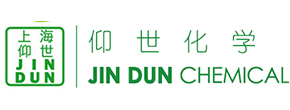109
Kappa-Carrageenan: A Natural and Versatile Hydrocolloid
2023/5/15
Kappa-carrageenan is a type of carrageenan, which is a natural polysaccharide extracted from red seaweeds. Carrageenans are widely used as hydrocolloids, which are substances that can form gels, thicken liquids and stabilize emulsions. Kappa-carrageenan has unique properties that make it suitable for various applications in food, pharmaceutical, cosmetic and industrial sectors. In this article, we will explore the characteristics, benefits and uses of kappa-carrageenan.
Natural and safe. Kappa-carrageenan is derived from natural sources and is considered safe for human consumption by the Food and Drug Administration (FDA) and the European Food Safety Authority (EFSA). It has no flavor, odor or color of its own and does not affect the nutritional value or sensory quality of the products it is added to.
Versatile and compatible. Kappa-carrageenan can be used in a wide range of products with different pH, temperature and salt conditions. It can also be blended with other hydrocolloids, such as locust bean gum, xanthan gum or starch, to modify its properties and achieve desired effects.
Cost-effective and efficient. Kappa-carrageenan can be used at low concentrations to achieve high gel strength and viscosity. It can also reduce the need for other ingredients, such as fat, sugar or protein, to improve the texture and stability of the products. It can also extend the shelf life and reduce the waste of the products by preventing syneresis and microbial growth.
Food. Kappa-carrageenan is used as a gelling agent, thickener and stabilizer in food products such as dairy products (e.g., cheese, yogurt, ice cream), meat products (e.g., ham, sausage, nuggets), desserts (e.g., pudding, jelly, custard), sauces (e.g., ketchup, mayonnaise, salad dressing), beverages (e.g., milkshakes, fruit juices, soy milk) and confectionery (e.g., marshmallows, gummies, nougat).
Pharmaceutical. Kappa-carrageenan is used as an excipient in pharmaceutical products such as tablets, capsules, suppositories and ointments. It acts as a binder, disintegrant, lubricant and coating agent to improve the delivery and performance of the active ingredients.
Cosmetic. Kappa-carrageenan is used as a rheology modifier in cosmetic products such as creams, lotions, gels and toothpastes. It helps adjust the viscosity, spreadability and stability of the products. It also provides moisturizing and soothing effects on the skin and mucous membranes.
Industrial. Kappa-carrageenan is used as a biopolymer in industrial products such as paints, adhesives, textiles and paper. It acts as a thickener, emulsifier and film-former to improve the quality and functionality of the products.
Characteristics of Kappa-Carrageenan
Kappa-carrageenan is composed of repeating units of galactose and 3,6-anhydrogalactose, with one sulfate group per two sugar units. It has a linear and rigid structure that forms strong and brittle gels in the presence of potassium ions. The gel strength and elasticity of kappa-carrageenan depend on the concentration, temperature and type of cations in the solution. Kappa-carrageenan gels can be melted by heating and reformed by cooling. Kappa-carrageenan also has good water-binding and syneresis control abilities, which means it can retain moisture and prevent liquid separation in gels.Benefits of Kappa-Carrageenan
Kappa-carrageenan has several benefits for various applications, such as:Natural and safe. Kappa-carrageenan is derived from natural sources and is considered safe for human consumption by the Food and Drug Administration (FDA) and the European Food Safety Authority (EFSA). It has no flavor, odor or color of its own and does not affect the nutritional value or sensory quality of the products it is added to.
Versatile and compatible. Kappa-carrageenan can be used in a wide range of products with different pH, temperature and salt conditions. It can also be blended with other hydrocolloids, such as locust bean gum, xanthan gum or starch, to modify its properties and achieve desired effects.
Cost-effective and efficient. Kappa-carrageenan can be used at low concentrations to achieve high gel strength and viscosity. It can also reduce the need for other ingredients, such as fat, sugar or protein, to improve the texture and stability of the products. It can also extend the shelf life and reduce the waste of the products by preventing syneresis and microbial growth.
Uses of Kappa-Carrageenan
Kappa-carrageenan is used in various products in different sectors, such as:Food. Kappa-carrageenan is used as a gelling agent, thickener and stabilizer in food products such as dairy products (e.g., cheese, yogurt, ice cream), meat products (e.g., ham, sausage, nuggets), desserts (e.g., pudding, jelly, custard), sauces (e.g., ketchup, mayonnaise, salad dressing), beverages (e.g., milkshakes, fruit juices, soy milk) and confectionery (e.g., marshmallows, gummies, nougat).
Pharmaceutical. Kappa-carrageenan is used as an excipient in pharmaceutical products such as tablets, capsules, suppositories and ointments. It acts as a binder, disintegrant, lubricant and coating agent to improve the delivery and performance of the active ingredients.
Cosmetic. Kappa-carrageenan is used as a rheology modifier in cosmetic products such as creams, lotions, gels and toothpastes. It helps adjust the viscosity, spreadability and stability of the products. It also provides moisturizing and soothing effects on the skin and mucous membranes.
Industrial. Kappa-carrageenan is used as a biopolymer in industrial products such as paints, adhesives, textiles and paper. It acts as a thickener, emulsifier and film-former to improve the quality and functionality of the products.
Conclusion
Kappa-carrageenan is a natural and versatile hydrocolloid that has many benefits and uses for various applications. It can form strong and brittle gels that can be melted and reformed by heating and cooling. It can also thicken liquids and stabilize emulsions with good water-binding and syneresis control abilities. It can be used in food, pharmaceutical, cosmetic and industrial products to improve their texture, stability and performance. However, kappa-carrageenan can also have some drawbacks such as sensitivity to cations, thermal hysteresis and potential health risks if consumed excessively or contaminated with impurities. Therefore, it is important to use kappa-carrageenan with caution and under quality control standards.
